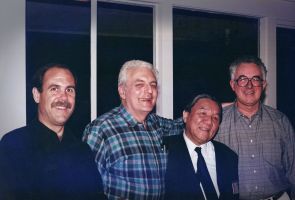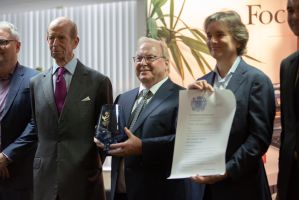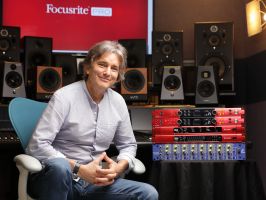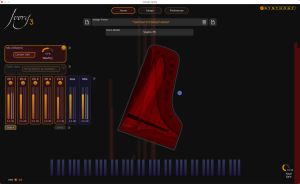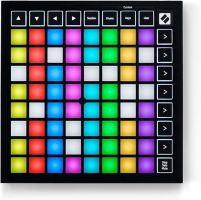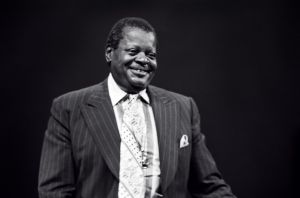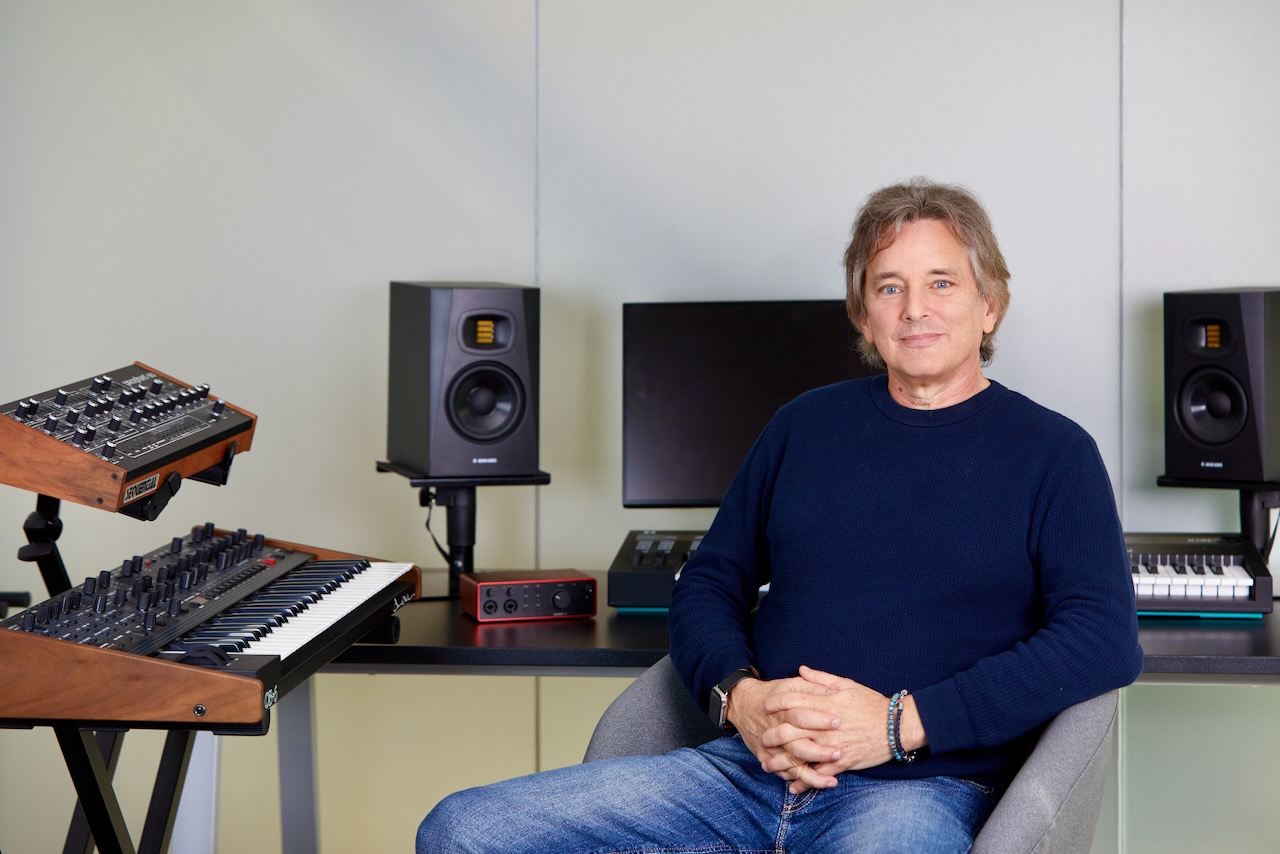
An interview with Tim Carroll, incoming President of the MIDI Association
![]() By Chris [KVR] on
By Chris [KVR] on
One important news item from the January NAMM Show was the appointment of industry veteran and Focusrite Group CEO, Tim Carroll to be President of the MIDI Association. Tim has a long history of success in the music products and professional audio industries. The news is especially opportune for the MIDI Association as they work to broaden the MIDI 2.0 standard.
First introduced in 1983 in large part because of the efforts of Dave Smith and other collaborators like Roland founder Ikutaro Kakehashi, MIDI 1.0, the very definition of the phrase "game changer" was immediately adopted by both software and hardware manufacturers. Many, many new products followed and MIDI, along with computers, changed the way that music is created, recorded, and produced.
Except for a few additions and clarifications, the spec hasn't evolved until recently. Most of the popular DAWs now support the new standard and and there were several MIDI 2.0 controllers like the Korg Keystage that join previously announced products like the Roland A-88MKII and Yamaha M8X.
The value that MIDI 2.0 offers is a bit more subtle, so the MIDI Association have their hands full both convincing hardware manufacturers and software developers to invest the resources for new MIDI 2.0 products, and educating the public as to the value. Tim Carroll is the man for the job. His experience is vast, including personal experiences adopting MIDI in his own work as a musician, and being on the development and manufacturing side of a wide array of software and hardware products.
Tell us about your background and your background with music?
I grew up in Atlanta, GA, where there was a very vibrant music scene. I started playing piano around the age of 6 and did formal lessons until about 12. By then, I was really interested in prog rock and when I was about 15 I was playing in a number of local bands. The older players would sneak me into the clubs because I was underage. I spent a number of years touring and writing music for TV and other formats.
And what were your first experiences with computers in your work?
Of course in the 80s computer technology began to creep into the recording process and I got sucked into the vortex and I became one of the local experts on MIDI programming, sequencing, etc. And one day, a friend from New York showed me something called Sound Tools by a start up company in California called Digidesign. And like with MIDI, I became obsessed with where I thought the technology could go, and shortly afterward I found myself moving to California and working at the company.
What did you do at Digidesign?
I had a number of roles bringing products like Pro Tools, the Venue live systems and Dcontrol/S6 control surfaces into the world. Digidesign eventually became part of Avid and during that journey, we were looking for a partner who could help us make less expensive hardware so we could bring Pro Tools to the home studio market. That partner was Focusrite, and that's when I met (Focusrite founder) Phil Dudderidge. We worked together on a number of very successful products and stayed in touch. At the end of 2016 Focusrite was looking for a new CEO, so I threw my hat in the ring and was happy to be selected.
Could you share some general observations of recent MI and Pro Audio consolidations
Our industry is in a constant state of change, often with re-occurring trends. As of late, there have been a number of companies becoming part of larger groups, and that results in larger, more diverse portfolios. Focusrite Group certainly has played a part in that: When I started there, we were essentially 2 brands, now we are 11 across Music/Audio Production and Live Sound.
How do hardware and software complement each other for Focusrite?
It's an important part of our strategy. For a lot of its history Focusrite's primary focus had been physical products, so as the lines between what is actually software and hardware merge acquisition of software companies is a natural evolution for us and others in our industry.
We're moving away from the world where a piece of hardware served one purpose and the user acquired different software solutions to augment what that hardware could do. While this workflow surely remains, we are seeing more recent hardware offer extended, multipurpose functionality with the ability to add more thru firmware and software updates.
Why have you chosen to get deeply involved with the MIDI Association?
When MIDI first came out, and as a touring and session keyboardist, I viewed it as one of the most important and major milestones in electronic music. Within a short amount of time, the world went from very closed and expensive eco-systems to a common protocol that allowed an infinite realm of possibilities. MIDI sequencers soon followed, and my world was forever changed for the better.
As computer technology has become more capable, it has also become more complex. The MIDI Association is all about education, accessibility, and nurturing a global community to make creating music and art easier. I think these areas are critically important to the future of our industry and advancing the creative process. It was a no-brainer when I was asked to join on (smiles).
Where do you want to help take MIDI 2.0 and the MA? What do you think it means for software developers?
I want to see MIDI 2.0 become widely adopted, just as it was back when 1.0 came out. I think our industry needs this kind of global platform to address many of the complexities and challenges we have with such powerful and deep tools, hardware and software. I would hope that both software and hardware developers will see MIDI 2.0 as a solid investment for them to ensure their solutions are advancing the creative process and allowing them to thrive in a very open and diverse ecosystem.
Are there any MA initiatives you are particularly excited about?
I'm excited about ALL of them. The leadership team here has already done a great job of working thru all the possible initiatives an org like this could do and really homing in on the ones that are going to make it easier for everyone to create music and art digitally.
I was particularly impressed with the latest NAMM show in January. The MIDI Association's booth was hosting all kinds of musicians showing how MIDI has enabled them to create and deliver amazing music, art and instruments. A number of initiatives have also provided start ups companies a path to become recognized and gain some with new products. Tying it all together, the initiatives on accessibility and education truly further the cause of making this technology and the creative process available to anyone on the globe. I think it's the combinational impact of all of these that excites me the most.
Scott Tibbs demonstrates MIDI 2.0 Profile at NAMM 2024
What kind of impact has AI and machine learning had on Focusrite? What do you think it means for music creation products industry in the future?
There is a ton of buzz about AI and rightly so. As I mentioned before, we now have very powerful, deep tools that allow the imagination to run wild in the creative process. AI will certainly play a major role in this going forward. From what I read and discuss across my industry contacts, there is a mixed view on this. Some believe AI is a big threat, potentially replacing the need or desire to create art when a computer can do a decent job of it with some basic guidelines. I'm more on the optimistic side: I've seen variants on these discussions before when drum machines and samplers came out: many thought it was the end of drummers and musicians playing real instruments. If anything, I think these innovations allowed a whole new crop of artists to use these tools in very effective ways to create new genres of music, including using these devices in remarkable ways that they were not originally intended for. Additionally, I think they also led to a much higher level of appreciation for the drummers and instrumentalist that they could emulate.
I view AI in a similar vein. For Novation and a number of our Group's other brands, we see AI as a tool and path to help artists at all levels further their craft. For example, one could imagine an AI tool that allows a Novation, Sequential or Oberheim synth to understand the current pallet of sounds in a track, including their frequency range, and offering up suggestions of patches that would fit into the track and potentially open up more creative options.
Do you still have time to play and/or record music?
Not as much as I would like and more playing than recording for now. I've really been focused over the past few years on becoming a better jazz, improvisational pianist. It's been a humbling process as I have really dug into the works of some of my all-time heroes in these genres: Oscar Peterson, Chick Corea, Art Tatum to name a few. I've also found that by studying their works and learning numerous pieces in their repertoire, it has expanded my creative process when I do record my own material or for someone else. My goal here is to never stop learning and enjoy all that comes from the experience!

Discussion
Please log in to join the discussion

